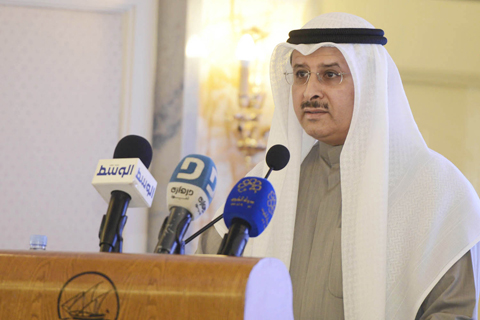 KUWAIT: Deputy Director General of the Manpower Public Authority Abdullah Al-Mutautah. — KUNA
KUWAIT: Deputy Director General of the Manpower Public Authority Abdullah Al-Mutautah. — KUNAKUWAIT: The Cabinet has given the thumps up to a national strategy designed to prevent human trafficking and immigrant smuggling. In its weekly meeting presided over by HH the Prime Minister Sheikh Jaber Mubarak Al-Hamad Al-Sabah, the executive body assigned the foreign and justice ministries with the task of making sure that the plan comes to fruition.
Meanwhile, a government official stressed Kuwait's keenness "out of its respect for human rights" on protecting the labor force working on its soil. Since its establishment in 2013, the Public Authority for Manpower has worked on regulating the labor market according to laws in the civil and private sectors and in light of Kuwait's commitment to international human rights agreements, as well as the ones of the International Labor Organization (ILO), Abdullah Al-Mutautah, the authority's Deputy Director General, told a host of diplomatic mission representatives in the country.
Moreover, Kuwait had signed a series of agreement in this regard, including 19 of the ILO, he noted, pointing out that Kuwait has gone a long way as far as labor-related legislations are concerned. Despite the fact that the old 1964 law on labor regulations was 'distinguished' on the Arab level, yet Kuwait saw that an updated version of the law was necessary in order for the country to keep up with developments and match its current international status, he said.
The original enactment of the labor law was in 1964 to regulate the workforce in the private sector. The amended 2011 version came mainly to ensure a fair treatment for all blue-collar workers. The law contains all essential rules and regulations that an employee needs to know before accepting a contract. It also contains significant guidelines and procedures that the employer should follow to make sure that an individual is a competent worker and is authorized to work in Kuwait. The meeting was attended by diplomatic representatives of France, the Netherlands, Egypt, Indonesia, Thailand, Nepal and the Philippines, as well as the ILO.










